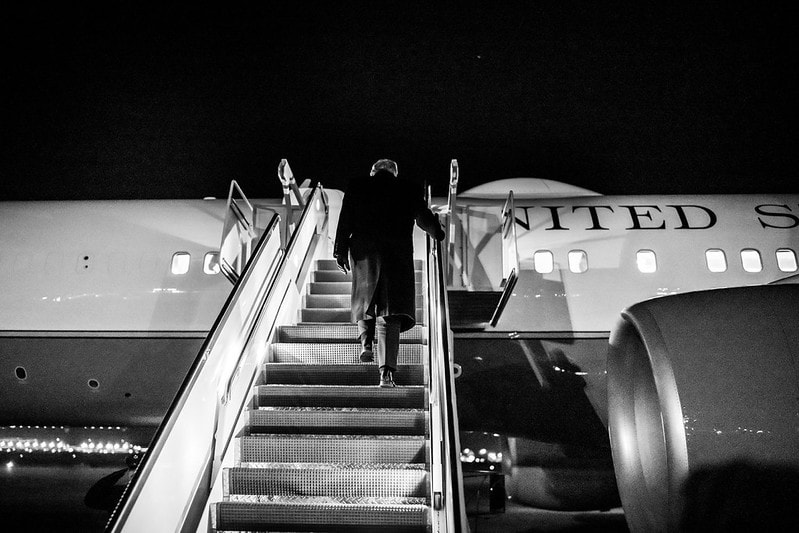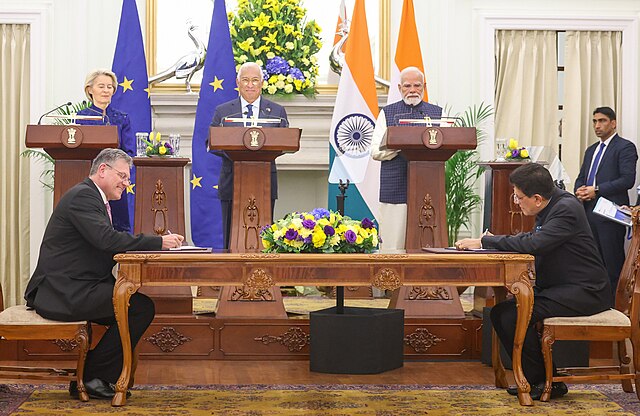Andrei Sakharov, the nuclear scientist and principal designer of the Soviet nuclear bomb, in 1968 courageously wrote “Reflections on Progress, Peaceful Coexistence and Intellectual Freedom,” which was not published in a traditional sense but circulated in an underground network (samizdat). It dealt with the global threat from thermonuclear war, hunger, ecological catastrophe, and despotism. He thought that ideologies of communism and capitalism could manage to live together, which he called “convergence.”
He had little inkling that religious “fundamentalism” would reemerge to the extent it has in the twenty-first century and that there are some States that are singular in the belief that theirs is the only true faith. Such States, armed with nuclear or other unconventional weapons of mass destruction, could threaten an imperfect balance that has kept us from mutual destruction. In 2025, theocracies that possess or may come to possess nuclear or other unconventional weapons represent one of the most complex challenges facing the international community.
Nuclear States and Theological Considerations
The term “theocracy” refers to a form of government in which a religious institution or religious doctrine is the source of ultimate authority. Theocratic governments typically operate under assumptions and motivations different from those of secular governments, making traditional diplomatic and deterrence strategies against them less effective.
For present purposes, there are three basic types of governance: (i) secular states are those without any explicit religion but in some, the veil of secularism is thin; (ii) theocracies, in which religious clergy rule or a religious institution or religious doctrine is the source of ultimate authority, or the government expressly imposes policies to serve religious purposes; and (iii) irreligious states, where those in power actively repress and direct religious practices.
Examples of countries that one would categorize as theocratic, that have nuclear capabilities, and that rely on religious beliefs to inform their political and military strategies include the following:
Pakistan: Its constitution establishes Islam as the State religion. It has approximately 170 nuclear warheads, and it is not a signatory to either the Nuclear Non-proliferation Treaty (NPT) or the Comprehensive Test Ban Treaty (CTBT).
India: It is not explicitly a Hindu country according to its Constitution, but provisions in it can be interpreted as making it such, and its current leadership reinforces Hindu dominance. It is reasonable to classify it as a religious State. It has had nuclear weapons since 1974, has approximately 164 nuclear warheads, and is not a party to the NPT or the CTBT.
Iran: It is officially the Islamic Republic of Iran and is governed by Shia Islamic clergy. Despite statements by its Supreme Leader, Ali Khamenei, it has developed the potential to create nuclear weapons and publicly views Israel as an illegitimate state. It is a signatory to the NPT and the CTBT.
Israel: Its Basic Laws are not a formal Constitution but have much in common with one. It was founded as a Jewish homeland and currently is arguably a de facto religious State with its governance and legal system actively supporting what effectively is a state religion. It is estimated to have roughly 90 nuclear warheads. It has signed the CTBT but not the NPT.
As to non-theocratic nuclear states, probably traditional nuclear superpowers, the United States and Russia, both with thousands of nuclear warheads, as well as China, will not use nuclear weapons, even in limited ways. The concept of “Mutually Assured Destruction” remains at the heart of US-Russia superpower nuclear doctrine and probably would apply de facto to India and Pakistan, as well as to China. Despite Russian President Vladimir Putin’s bellicose speeches, Russia is unlikely to use tactical nuclear weapons in Ukraine while it has other options, such as the hypersonic cruise missile, which can be used either with or without nuclear armament.
Another potential high-risk situation is that the international community, and in particular Israel, has vowed to prevent Iran from becoming a nuclear power. Before and if it should happen, the response is unpredictable and frightening for everyone.
Implications for Conventional Diplomacy
When a government derives its authority from religious tenets and beliefs, some types of conventional transactional negotiations are either impossible or extremely difficult with nonbelievers, although the Obama administration did reach a nuclear agreement with Iran. This is not new, of course, and indeed has been a factor during much of human history. What is different now is that weapons of mass destruction, in particular nuclear weapons, are increasingly available to those who believe they answer to a higher calling, that they are righteous and empowered by a Supreme Being. In dealing with such national theocracies (and growing numbers of non-State actors with increasing access to unconventional weapons of mass destruction), consider what has changed and what remain critical factors:
Deterrence and Security: The possession of nuclear weapons changes the calculus of conventional diplomacy; as mentioned, in the past the specter of mutually assured destruction played a significant role in strategic negotiations.
Trust: Newcomers to the nuclear club are likely to be doubted as to whether they will adhere to possible bilateral or multilateral agreements (Iran did adhere to its nuclear agreement, but the United States terminated the agreement). Extra effort is needed to build the necessary trust, transparency, and confidence-building measures, but these are hard to come by.
Reliance on Institutional Frameworks: Existing multilateral frameworks, such as arms control treaties, require constant negotiation, adaptation, and verification, which may become anathema for a theocracy.
Different Skills Emphasis for Effective Diplomacy with Theocracies
When religious factors dominate, conventional diplomatic tools need new or sharpened skill sets.
Cultural competency: Understanding the religious and historical narratives that shape national identities and governmental policies and decisions.
Crisis management techniques: Whether domestic or international, triggering events will affect high-stakes negotiations and make it harder to de-escalate situations that may lead to conflict.
Approaches to Negotiation: The style and substance of an agreement will necessitate draftsmanship that offers language acceptable to both conventional and theological perspectives.
Communication fine-tuning: Sensitivity to religious feelings and dimensions, both in tone and proposals, will need good, if not near perfect, pitch.
Related Articles: NATO and Putin’s Nuclear Threats | Learning From Hiroshima and Nagasaki: the Path to Nuclear Disarmament
Revised or New Bilateral or Multilateral Agreements
Nuclear Non-Proliferation: Strengthening agreements such as the NPT with additional protocols specific to the theological contexts of some member countries.
Regional Security Pacts: Revising or crafting new agreements focusing on mutual security guarantees will be another avenue. Particularly in regions with multiple nuclear powers, such as those in South Asia and potentially some in the Middle East, where Israel already has nuclear weapons (and Iran is close, and conceivably Saudi Arabia will want the same).
Cultural Exchange Initiatives: If credible, promoting cross-cultural dialogue and understanding between nations with nuclear capabilities through interfaith programs and cultural diplomacy can enhance the negotiating environment.
Arms Control Treaties: Expanding treaties that are designed to take into account theological concerns can be a pathway for disarmament grounded in common values.
It is a mistake to focus solely on nuclear threats since there are now other options for States and non-state actors to acquire unconventional weapons. The same points would apply, however, to other potential weapons of mass destruction.
International Community Responses
Theocracies that possess, or aspire to possess, nuclear weapons present complex and multifaceted challenges given today’s geopolitical environment. That said, some see providing assistance to develop nuclear power as the best way forward, while others think it risks enabling the resultant uranium and technology easing the pathway to nuclear arms.
The World Nuclear Association puts it this way:
“Civil nuclear power has not been the cause of or route to nuclear weapons in any country that has nuclear weapons, and no uranium traded for electricity production has ever been diverted for military use. All nuclear weapons programmes have either preceded or risen independently of civil nuclear power, as shown most recently by North Korea. Only five tons of natural uranium is required to produce a nuclear weapon, so there is no chance containing nuclear weapons proliferation will be solved by turning away from nuclear power.”
It is irrefutable that uranium and access to nuclear weapons technology are increasingly available and that the international community needs to look at a suite of innovative and multi-pronged approaches. These include:
Sanctions and Incentives: Economic sanctions can pressure theocratic regimes to comply with international norms. Sanctions alone, however, are often insufficient and can have unintended consequences, such as harming and antagonizing the civilian population of a sanctioned country.
Integration into the Global Economy: Increasing integration of theocratic regimes into the global economy could create interdependencies that make aggressive actions, including the use of nuclear weapons, less likely. Fostering economic ties and providing trade and investment opportunities could incentivize greater stability and cooperation.
Strengthening International Norms and Legal Accountability: Multi-participant diplomatic efforts could be a pathway to build consensus and support for non-proliferation and disarmament initiatives. Holding theocratic regimes accountable for violations of international law may be another way to deter aggressive actions.
Humanitarian Advocacy: Highlighting the catastrophic humanitarian consequences of nuclear war can build public and political support for disarmament efforts. The International Red Cross and the Red Crescent Movement, for example, call for the prohibition and elimination of nuclear weapons on humanitarian grounds.
Civil Society Support: Empowering civil society organizations and grassroots movements can amplify voices advocating for disarmament and non-proliferation. These groups can play a vital role in raising awareness and mobilizing public opinion.
Successful engagement of theocracies with the international community to avoid a nuclear catastrophe will be a tall order: Failing to do so means global disorder and, possibly, massive worldwide destruction.
** **
Richard Cooper contributed to this article.
Editor’s Note: The opinions expressed here by the authors are their own, not those of Impakter.com — In the Cover Photo: US nuclear weapons test, Nevada, 1951. Cover Photo Credit: US Government / International Campaign to Abolish Nuclear Weapons.












